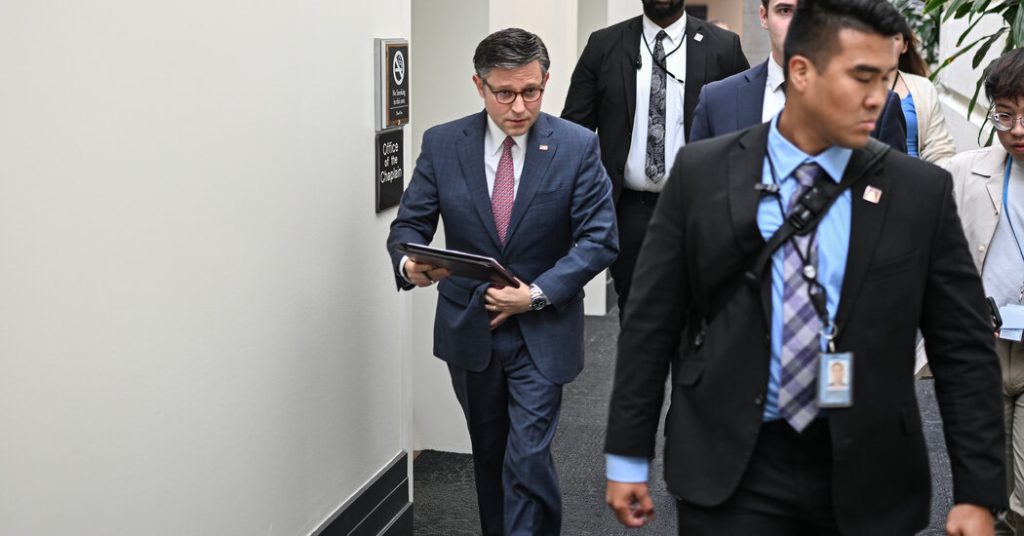Republican lawmaker Mike Johnson faced significant opposition on Wednesday to his proposal to extend a key surveillance law known as Section 702 of the Foreign Intelligence Surveillance Act (FISA). Former President Donald Trump urged lawmakers to kill the legislation, leading to a backlash from right-wing lawmakers who want to severely limit the government’s spying powers. Republican leaders planned to proceed with a vote on the bill, but the outcome was uncertain due to Trump’s statement and opposition from within the party.
Trump’s social media post calling for the killing of FISA cited illegal surveillance against him during his campaign, although the section in question relates to targeting foreigners for surveillance without warrants. Despite the confusion, Trump’s message resonated with his allies on Capitol Hill who view blocking the extension of the law as a way to push back against national security agencies. The fate of Section 702, set to expire on April 19, remains uncertain amidst growing opposition and internal discord within the Republican Party.
There is a historical precedent for Trump’s intervention on FISA, as he previously caused turmoil over the issue in 2018. In this instance, Speaker Mike Johnson, who once opposed the extension, now supports it as containing significant intelligence reforms. However, lawmakers like Representative Matt Gaetz have vowed to prevent the bill from proceeding, citing concerns about adherence to the Constitution. The bill aims to address the government’s ability to collect messages of noncitizens abroad without warrants, a practice that sometimes results in the collection of Americans’ private communications.
The bill includes provisions to limit officials’ access to collected information and requires stricter reporting requirements to prevent potential abuses. However, there is debate over whether officials should be required to obtain a warrant before searching Americans’ communications, with some arguing that such a requirement would weaken national security efforts. Supporters of the bill, including senior lawmakers on national security committees, back the more modest adjustments while a minority of Republicans seek to let Section 702 expire altogether.
Johnson defended the extension in a letter to Republicans, emphasizing the importance of the surveillance tools in countering threats to the country. He acknowledged the FBI’s past abuses of FISA authority and stressed the need to prevent future violations while maintaining the program. The debate surrounding the extension of Section 702 highlights ongoing tensions within the Republican Party over national security and surveillance issues. As the deadline for the law’s expiration approaches, the outcome of the vote on the bill remains uncertain.


